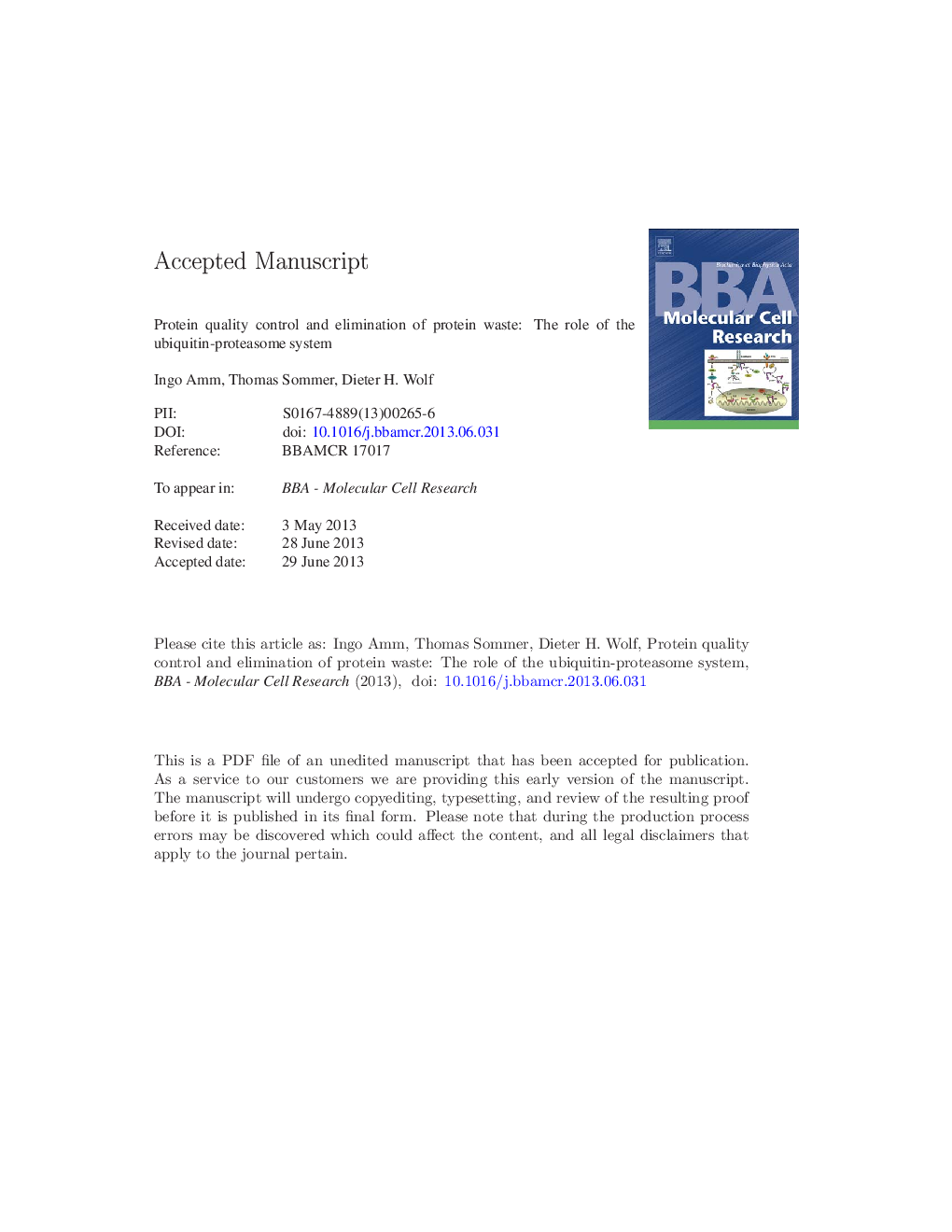| Article ID | Journal | Published Year | Pages | File Type |
|---|---|---|---|---|
| 10802193 | Biochimica et Biophysica Acta (BBA) - Molecular Cell Research | 2014 | 48 Pages |
Abstract
Mistakes are part of our world and constantly occurring. Due to transcriptional and translational failures, genomic mutations or diverse stress conditions like oxidation or heat misfolded proteins are permanently produced in every compartment of the cell. As misfolded proteins in general lose their native function and tend to aggregate several cellular mechanisms have been evolved dealing with such potentially toxic protein species. Misfolded proteins are mostly recognized by chaperones on the basis of their exposed hydrophobic patches and, if unable to refold them to their native state, are targeted to proteolytic pathways. Most prominent are the ubiquitin-proteasome system and the autophagic vacuolar (lysosomal) system, eliminating misfolded proteins from the cellular environment. A major task of this quality control system is the specific recognition and separation of the misfolded from the correctly folded protein species and the folding intermediates, respectively, which are on the way to the correct folded state but exhibit properties of misfolded proteins. In this review we focus on the recognition process and subsequent degradation of misfolded proteins via the ubiquitin-proteasome system in the different cell compartments of eukaryotic cells. This article is part of a Special Issue entitled: Ubiquitin-Proteasome System. Guest Editors: Thomas Sommer and Dieter H. Wolf.
Keywords
Related Topics
Life Sciences
Biochemistry, Genetics and Molecular Biology
Biochemistry
Authors
Ingo Amm, Thomas Sommer, Dieter H. Wolf,
